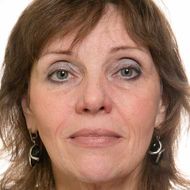В старых версиях браузеров сайт может отображаться некорректно. Для оптимальной работы с сайтом рекомендуем воспользоваться современным браузером.
✖
- A
- A
- A
- ABC
- ABC
- ABC
- А
- А
- А
- А
- А
Regular version of the site
Courses
ФКН
- HSE University
- Faculty of Economic Sciences
- Department of Applied Economics
- Courses
- Experimental Economics, 2021/22 Academic year
-
The Department
109028, Moscow
Pokrovsky blvd. 11,
Room S-527
Phone: (495) 772-95-99 ext.27502, 27503, 27498
Administration
Department Head
–
Svetlana B. Avdasheva
Deputy Department Head
–
Liudmila S. Zasimova
Manager
–
Maxim Shevelev
Events
Apr 25 – Apr 26
Book
In press
Yudkevich Maria, Altbach P. G., Salmi J.
Cambridge: MIT Press, 2023.
Article
Besstremyannaya G., Dasher R., Golovan S.
HSE Economic Journal. 2025. Vol. 29. No. 1. P. 72-102.
Book chapter
In bk.: Vocation, Technology & Education. Vol. 1. Iss. 4. Shenzhen Polytechnic University, 2024.
Working paper
 Living Standards in the USSR during the Interwar Period
Living Standards in the USSR during the Interwar Period
Economics/EC. WP BRP. Высшая школа экономики, 2023. No. 264.
109028, Moscow
Pokrovsky blvd. 11,
Room S-527
Phone: (495) 772-95-99 ext.27502, 27503, 27498
Administration
Department Head
–
Svetlana B. Avdasheva
Deputy Department Head
–
Liudmila S. Zasimova
Manager
–
Maxim Shevelev
Experimental Economics
2021/2022
Academic Year
ENG
Instruction in English
3
ECTS credits
- About
- About
- Key Figures & Facts
- Sustainability at HSE University
- Faculties & Departments
- International Partnerships
- Faculty & Staff
- HSE Buildings
- Public Enquiries
- Studies
- Admissions
- Programme Catalogue
- Undergraduate
- Graduate
- Exchange Programmes
- Summer Schools
- Semester in Moscow
- Business Internship
-
https://elearning.hse.ru/en/mooc/
Massive Open Online Courses
-
https://www.hse.ru/en/visual/
HSE Site for the Visually Impaired
-
http://5top100.com/
Russian Academic Excellence Project 5-100
- © HSE University 1993–2025 Contacts Copyright Privacy Policy Site Map
- Edit



Instructor
Evdokimov, Pyotr
Course Syllabus
Abstract
Learning Objectives
Course Contents
Assessment Elements
Interim Assessment
Bibliography
Recommended Core Bibliography
Presentation